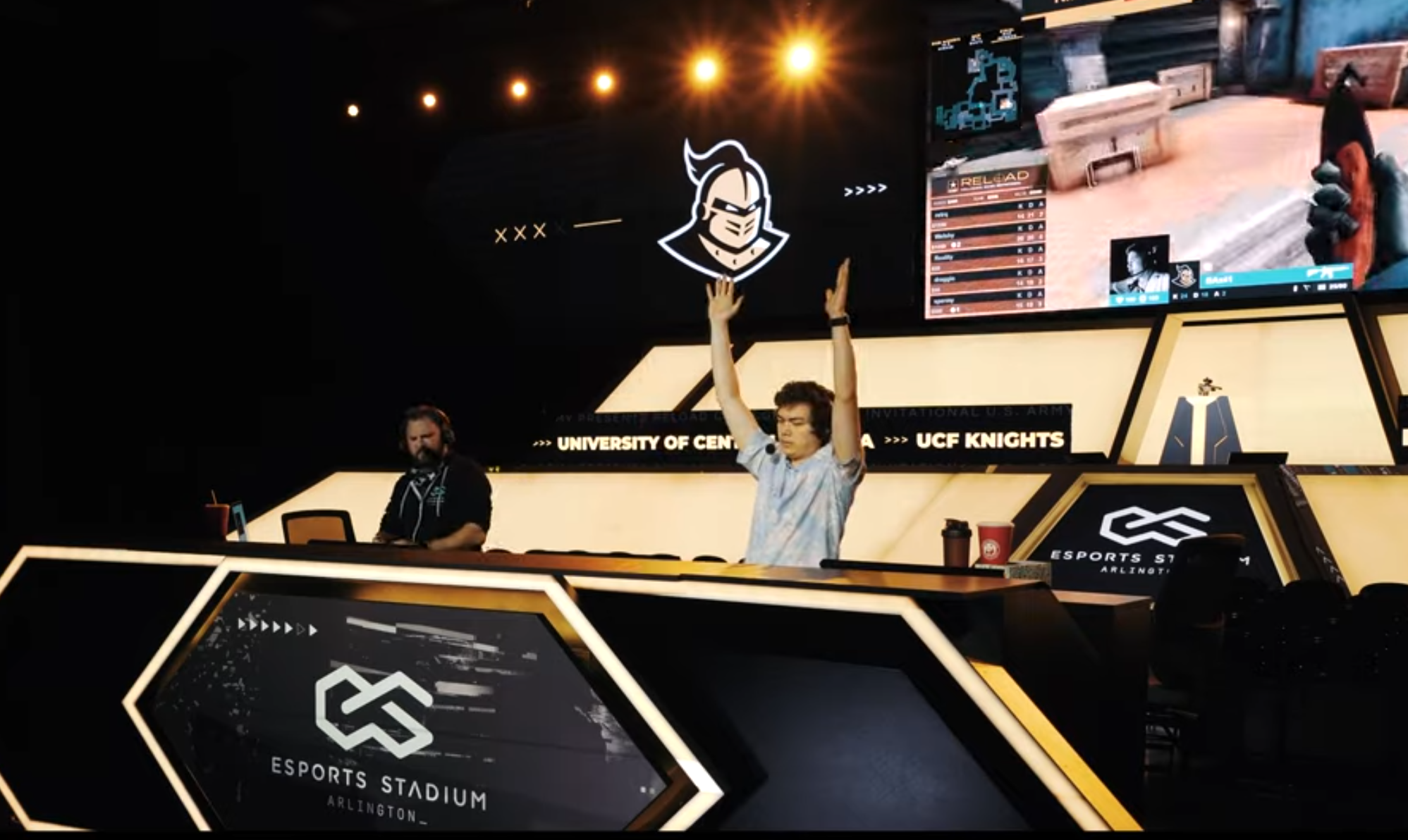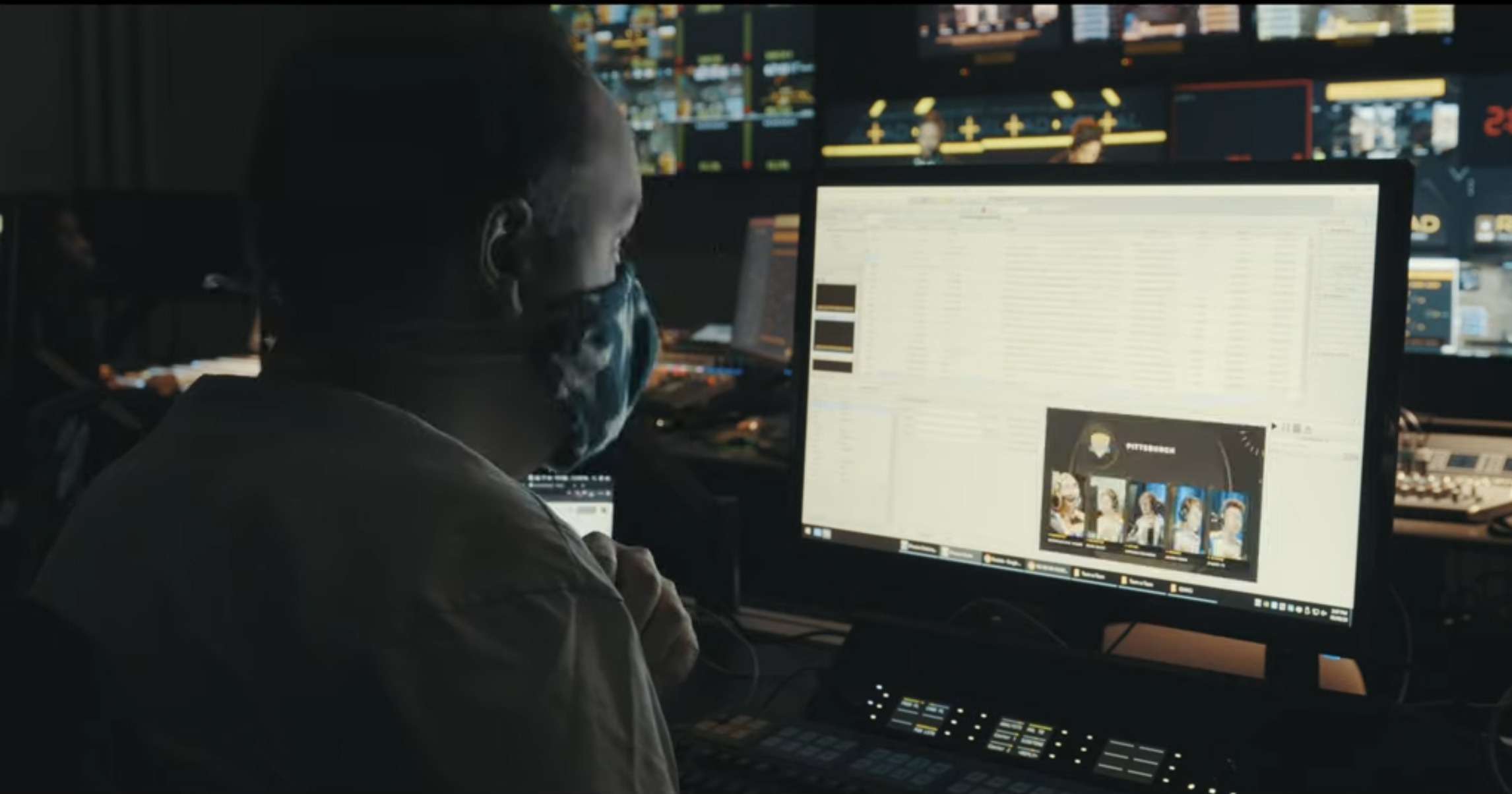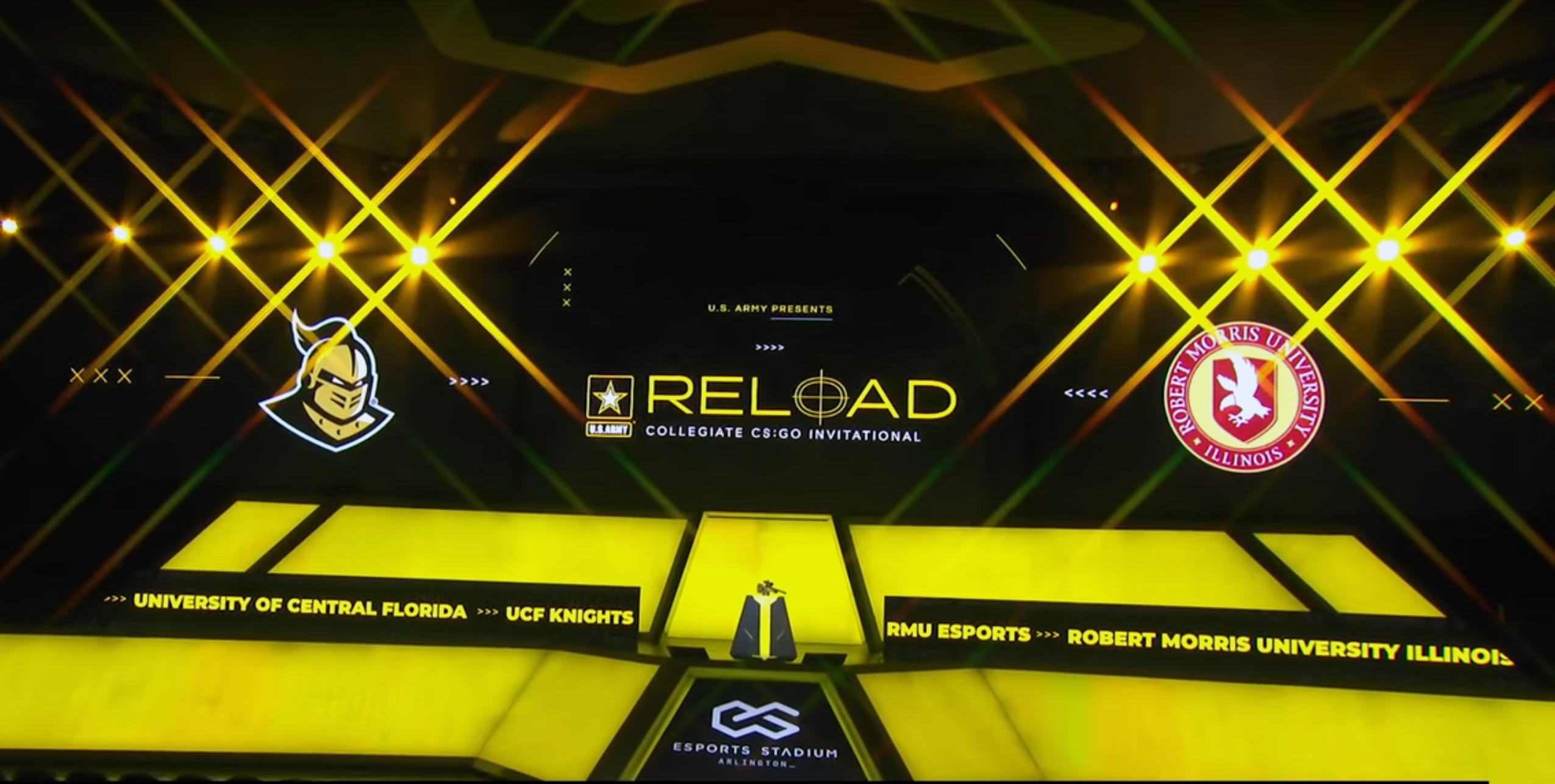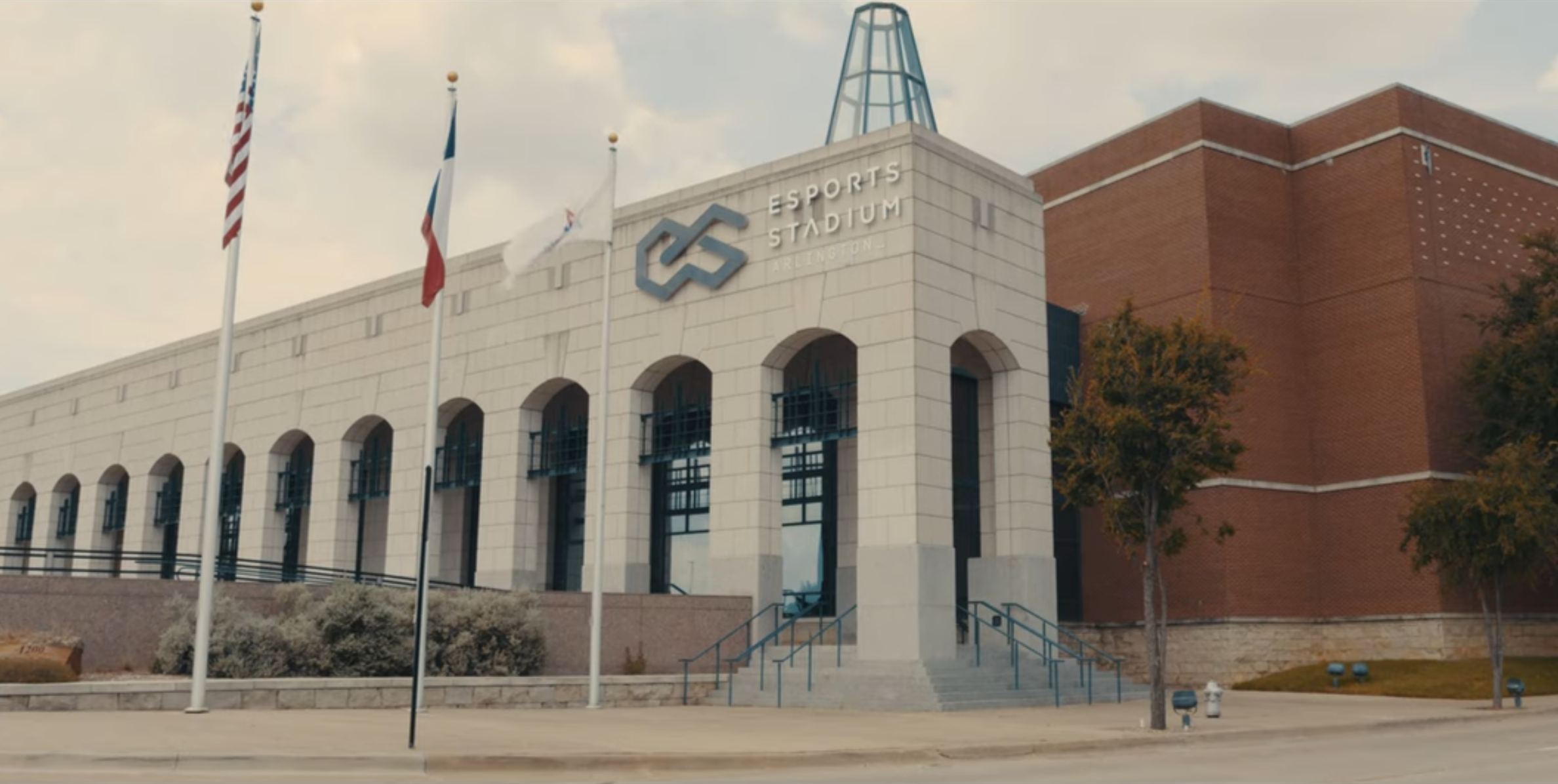Esports Stadium Arlington Stays Busy During Lockdown With Shift to Online Tournaments
Venue keeps fans engaged with CoD: Warzone, collegiate CS:GO live events
Story Highlights
Since opening in November 2018, Esports Stadium Arlington (ESA) has become a mecca for the gaming community, hosting a mix of high-profile and grassroots esports tournaments. However, with the in-venue event business on hold due to the coronavirus pandemic, North America’s largest dedicated esports facility has shifted its focus, returning to the online roots from which esports blossomed.
“Online events is really where esports originated and where broadcasting began on a regular basis,” says Esports Stadium Arlington Chief Creative Officer Corey Dunn. “Our goal was to recapture that magic by changing how we were doing things without taking away from the quality of the broadcast.”
ESA Gets Back in the Game With Collegiate CS:GO Invitational
ESA had been planning an in-person Counter Strike: Global Offensive collegiate tournament before the pandemic shut down live events. Rather than waving the white flag, ESA revamped the event for an online format and teamed up with the U.S. Army to host the U.S. Army Presents Reload Collegiate CS:GO Invitational. The 28-team online tournament streamed on the ESA Twitch channel April 27 – May 10 and was produced by a skeleton crew composed entirely of ESA’s in-house production staff.
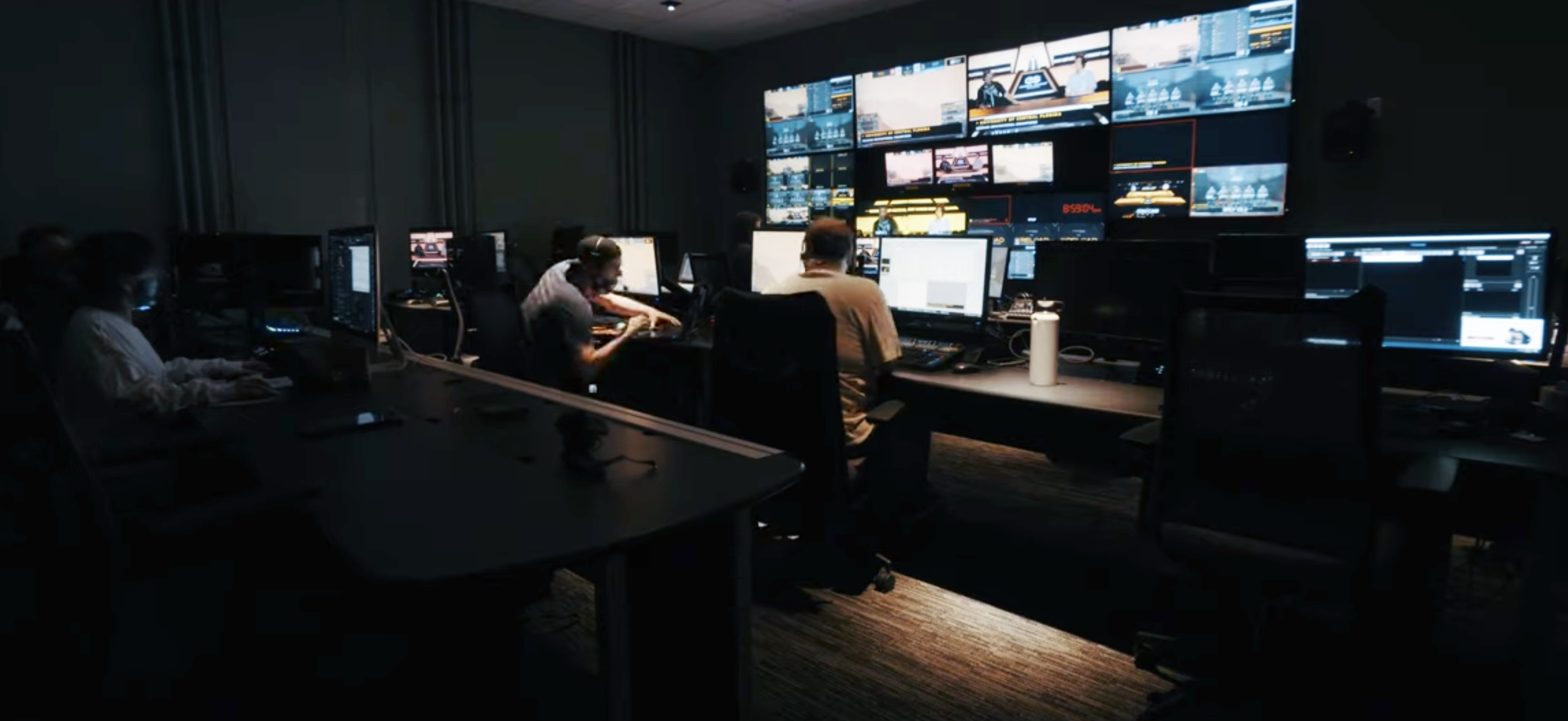
Esports Stadium Arlington produced the recent Collegiate CS:GO Invitational with just an eight-person crew.
“We [had] teams from all over North America competing in an online tournament and we [were] doing it from a single location with very few staff members…and making things work,” says Dunn. “That just shows how much our team can adjust and adapt. Throughout the years, we’ve seen so many different types of things come our way and…we adapt and create something special. And now we have tons of buzz all across social media about how well this event [was] produced.”
Dunn and company used the facilities in Arlington to produce the event with just eight crew members onsite (social distancing and masks are enforced at all times inside the venue) — all of whom are ESA employees. By the end of the tournament, the ESA production team had delivered 126 hours and 100+ maps played over 14 days using the limited crew.
“Luckily for us, esports is done over Ethernet cables, whether that’s physically in a venue or online, so it doesn’t make too much of a difference,” says Dunn. “In terms of [adapting] our venue [for online events], we leveraged a whole series of integrations and macros in order to automate everything as much as we could. That way, with the press of a single button, we could trigger multiple actions or elements within the show.”
Dunn, an esports pioneer with extensive experience as a caster, served as an on-camera host/caster as well as in his usual role as executive producer, regularly communicating with the control room. He was joined on the call by ESA Events Director Jonathan Oh — with both located inside the arena at a studio desk covered by three unmanned cameras. (Late-round coverage featured a third caster, working from home.)
In the control room, the Grass Valley Karrera switcher was manned by TD/Director Jarious Holliday, who cut the three cameras and in-game action together. In advance of the event, he built in macros to easily trigger transitions, graphics, replays, and more to help streamline the operation.
Producer/CG Operator Nick Beall and Graphics Producer Monica Nguyen built out new dynamic graphics packages for the event and handled the live-graphics playout. Joe Lane served as the lone replay operator, using a Grass Valley Live Touch system to build replay packages, quick-turn highlights, and full rollouts — a job that Dunn says typically requires two people. Also on the production team were A1 Tyler Parish, mixing audio, and In-Game Observer Jordan Trabue, who also managed all logistics with the teams during the event. Social Media/Marketing Manager Kimberly Yee was handling her duties offsite.
Discord Comes Up Big for Comms
With 28 teams scattered across the country, comms played a key role not only in the live competition but also in post-match interviews with players. To communicate with players, ESA deployed Discord, the gaming-centric VoIP platform, and was able to tie it directly into its Riedel Communications intercom system and Dante-based audio network.
“We leveraged Discord to transmit both video and audio because of the ease of use,” says Dunn. “The big challenge [was] that a lot of the bigger groups we were dealing with [used] several different platforms, which creates troubleshooting issues. We knew that a lot of the collegiate players leveraged Discord all the time, so we just upped our Discord services and did interviews over that.”
When the third remote caster joined Dunn and Oh for later rounds, the same workflow was used to send him the video feed and provide talk-back capability to our producer and director in the control room (similar to an IFB).
Looking Ahead: More Live Online Events on the Horizon
Shortly after the Reload Collegiate CS:GO Invitational ended, the ESA team was back in action hosting a Valorant event for Envy Gaming using a nearly identical workflow.
“We used the exact same workflow except that both talent were online in their own homes,” says Dunn. “We used Discord and pulled their full 1080p video feeds individually, and we used our system to tie everything together. The video feed that they saw was the program feed, and the audio feed that they heard was the mixed audio that we individualized just for them since commentators tend to be very particular about how they hear their audio.”
Next up is the Reload Drops In With the U.S. Marine Corps event featuring the popular battle royale game Call of Duty: Warzone. The free-to-play online tournament will feature participants competing as teams of three for the opportunity to be joined by an active-duty Marine. Each trio that advances will team up with a Marine to compete during the final matches, to be live-streamed on June 27 on www.twitch.tv/esportsstadium (CLICK HERE to register to compete).
“Everything that we learned from the collegiate event,” says Dunn, “we immediately applied to the next thing that we did, and we’re going to continue to apply that for everything else that we’re doing. We’re really excited just to be able to create high-quality content right now, and we’ve got a lot more to come.”
